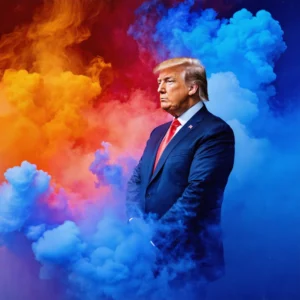
Introduction: A Moment of Reckoning
In a remarkable display of steadfast commitment, Sen. Cory Booker recently captured public attention by challenging long-standing political norms. He confronted controversial legacies and demanded accountability as he stood up for justice relentlessly. Moreover, the senator’s 25-hour marathon address resonated with citizens seeking transparency and reform. Additionally, his actions inspired supporters and critics alike, urging a comprehensive review of historical records.
The Catalyst of Change
Booker’s impassioned stance traced back to numerous letters from constituents who yearned for progress. One letter writer from Oceanside declared, “It’s about time segregationist Thurmond’s record is erased.” Consequently, this sentiment propelled discussions on racial history and modern accountability. Furthermore, experts suggested that reevaluating the past provides a clearer path for the future. In summary, the senator’s actions initiated a cultural shift that continues to unfold across political landscapes.
Historical Context and Political Backdrop
Since the early days of his career, Booker built a reputation for challenging outdated norms. He argued vigorously against policies that once promoted inequality. In turn, communities rallied around him to dismantle harmful legacies. His efforts aligned with historical movements that aimed to create inclusive political narratives.
To illustrate the evolution of these reforms, consider the following key points:
- Progress emerged through questioning past records.
- Civic engagement rose as communities demanded fairness.
- Leadership evolved by confronting an unjust historical narrative.
Moreover, his campaign succeeded in refocusing debates on essential themes such as justice and integrity.
Analytical Perspectives and Detailed Breakdown
Politically, the senator ignited discussions on historic segregation. Analysis reveals that his prolonged oratory session served as a turning point. Faced with political adversaries like former President Trump, Booker made a statement of resilience and endurance. In addition, his unyielding stance urged political leaders to revisit previous decisions and amend discriminatory policies. A detailed timeline summarizes his efforts:
- Early advocacy for civil rights reforms.
- Key speeches that merged history with modern struggles.
- Recent address highlighting the urgency for change.
Furthermore, his remarks transcended party lines, inviting dialogue among diverse communities.
Deconstructing the 25-Hour Marathon
Booker’s 25-hour stand came as a calculated measure to emphasize resolve and uninterrupted dedication. He organized his speech around personal experiences and historical insights, thereby bridging past injustices with current demands for equity. Consequently, listeners witnessed a seamless blend of personal narrative and political critique. Besides, every segment of his speech aimed at igniting critical reflection in a divided political arena.
Additionally, he incorporated vivid imagery and moving stories that stirred emotions. For instance, he described moments of personal loss juxtaposed with his hope for reform. His approach imparted a lesson on resilience, as he cited the following examples:
- The importance of continuous civic engagement.
- The necessity of revising historical legacies.
- The influence of sustained public debate reshaping policies.
In this way, Booker solidified his role as both a storyteller and reformist.
Impact on Contemporary Politics
The senator’s brave endeavor significantly affected contemporary political discourse. Observers noted that his impassioned defense served as a mirror for the nation’s conflicts and aspirations. Moreover, the unfolding events provided fertile ground for both policy critiques and zone reformation strategies. In parallel, political opponents reexamined their strategies, engaging in robust debates that embraced transparency and historical reckoning.
Furthermore, media outlets globally echoed his call for accountability. The unprecedented length and emotional weight of his speech transformed political debates into a forum for reflective change across the spectrum of governance.
Table of Key Events
| Event | Date | Impact |
|---|---|---|
| Initial Speech | Earlier this year | Public Awakening |
| 25-Hour Marathon | Recent | Renewed Debate |
| Policy Reevaluation | Ongoing | Systemic Change |
Community Reactions and Societal Shifts
Across diverse communities, citizens expressed both admiration and critical reflection. Many saw Booker’s perseverance as a symbol of long overdue transformation. In contrast, skeptics maintained that the efforts merely stirred headlines without immediate policy changes. Nevertheless, countless individuals celebrated the senator’s unwillingness to compromise on principles.
Moreover, community leaders organized forums and discussions to decode the layers of his message. They emphasized the need to address historical wrongs while planning proactive reforms. Notably, local groups outlined their demands through the following steps:
- Review of historical records.
- Implementation of inclusive policies.
- Formation of bipartisan committees.
These actions underscored a united effort toward constructive dialogue.
Looking into the Future: Challenges and Opportunities
Today, political landscapes face emerging challenges and opportunities alike. Booker’s symbolic stand continues to inspire legislative reform and public debate. Simultaneously, the pressure mounts for comprehensive policy revisions, particularly regarding racial and historical injustices.
In addition, political observers anticipate that upcoming elections will further integrate these themes into their platforms. Political experts predict an era marked by accountability, transparency, and collaborative reform. Consequently, policymakers across the spectrum now prioritize long-overdue changes. Moreover, public opinion actively supports measures that aim to obliterate outdated and discriminatory records.
Key Takeaways for the New Era
In conclusion, Sen. Booker’s actions offer a blueprint for robust political engagement. His method showcases the power of sustained advocacy and the importance of revisiting historical legacies. Furthermore, his journey reminds us that progressive policies stem from persistent dialogue and courageous stands. As communities unite around these ideals, a new dawn emerges—one defined by accountability, reform, and an unwavering commitment to justice.




